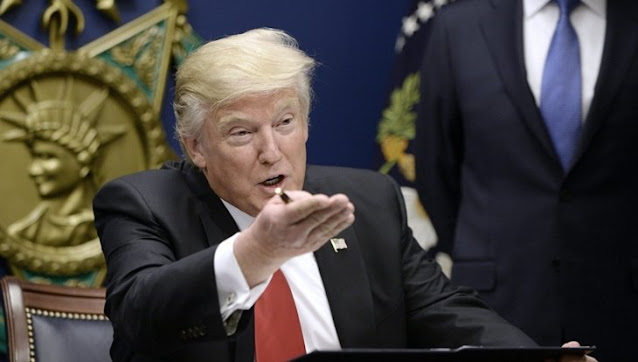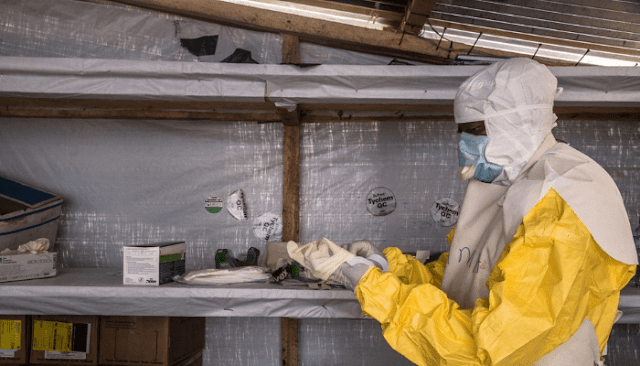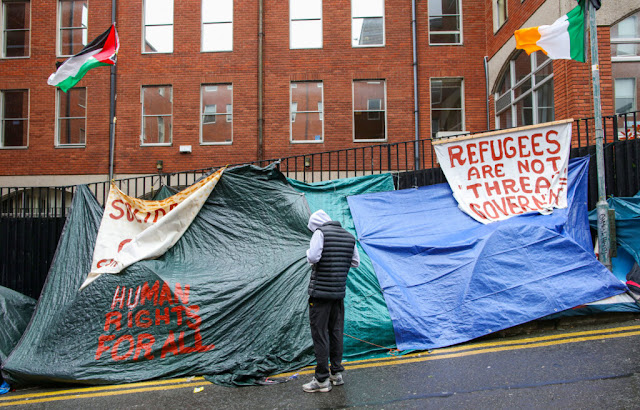In a bold and unequivocal statement, former U.S. President Donald Trump has warned foreign governments of severe repercussions for wrongfully detaining American citizens abroad. Speaking at a recent public event, Trump emphasized that any nation engaging in such practices would face significant diplomatic, economic, and potentially military consequences. The remarks come amid growing concerns over the increasing number of U.S. nationals detained overseas under questionable circumstances, often described as “hostage diplomacy.” Trump’s comments signal a potential shift toward a more aggressive U.S. foreign policy stance on this issue, raising questions about how such a policy might be implemented and its implications for international relations.
The Context of Trump’s Statement
The issue of wrongful detentions has gained prominence in recent years, with several high-profile cases drawing global attention. American citizens, including journalists, tourists, business professionals, and even former military personnel, have been detained in countries such as Russia, China, Iran, and North Korea, often on charges widely regarded as politically motivated. These detentions are frequently seen as leverage in diplomatic negotiations, a tactic that has frustrated U.S. officials and sparked outrage among the American public.
Trump’s remarks were made during a speech in which he addressed a range of foreign policy concerns, including trade imbalances, national security, and the treatment of American citizens abroad. He specifically highlighted the plight of individuals detained without due process, accusing certain nations of exploiting U.S. nationals as bargaining chips. “If you take our people, if you hold them wrongfully, you will pay a price like you’ve never paid before,” Trump declared, underscoring his administration’s previous efforts to secure the release of detained Americans and signaling his intent to prioritize this issue in future policy considerations.
The former president’s comments come at a time when the United States is navigating complex geopolitical challenges, including strained relations with adversaries like China, Russia, and Iran, as well as delicate partnerships with allies. The issue of wrongful detentions has become a flashpoint in U.S. foreign policy, with both Republican and Democratic administrations grappling with how to secure the release of citizens while avoiding concessions that might embolden hostile governments.
Historical Background of Wrongful Detentions
The phenomenon of wrongful detentions is not new but has evolved in scope and complexity over time. During the Cold War, both the United States and the Soviet Union occasionally detained each other’s citizens on espionage charges, often as a means of exerting pressure during periods of heightened tension. In recent decades, however, the practice has expanded to include a broader range of countries and motivations. Authoritarian regimes, in particular, have been accused of using detentions to extract political or economic concessions, such as sanctions relief, prisoner exchanges, or financial payments.
High-profile cases have brought the issue into sharp focus. For example, the detention of WNBA star Brittney Griner in Russia in 2022 on drug-related charges, widely criticized as politically motivated, led to a high-stakes prisoner swap with the U.S. Similarly, American pastor Andrew Brunson was detained in Turkey for over two years on charges of espionage and terrorism, prompting Trump’s administration to impose sanctions and tariffs to secure his release in 2018. These cases illustrate the multifaceted nature of wrongful detentions, which often involve a mix of legal, diplomatic, and economic considerations.
The U.S. government has designated certain detentions as “wrongful” under the Robert Levinson Hostage Recovery and Hostage-Taking Accountability Act, passed in 2020. Named after a former FBI agent who disappeared in Iran in 2007, the law provides a framework for identifying wrongful detentions and coordinating efforts to secure the release of affected individuals. Criteria for wrongful detention include cases where U.S. nationals are held without credible evidence, subjected to unfair trials, or used as leverage in diplomatic disputes. The State Department’s Special Presidential Envoy for Hostage Affairs plays a key role in these efforts, working to negotiate releases and advocate for detained Americans.
Trump’s Proposed Approach
Trump’s recent remarks suggest a return to a hardline stance on wrongful detentions, consistent with his “America First” foreign policy doctrine. During his presidency from 2017 to 2021, Trump frequently touted his administration’s success in securing the release of detained Americans, including three citizens freed from North Korea in 2018 and several others from countries like Iran and Venezuela. His approach often combined public pressure, economic sanctions, and direct negotiations, sometimes bypassing traditional diplomatic channels.
In his latest comments, Trump advocated for a policy of “maximum pressure” against nations that detain U.S. citizens unjustly. While he did not outline specific measures, his rhetoric hinted at a combination of punitive actions, including targeted sanctions, trade restrictions, and even the possibility of military posturing in extreme cases. “We will not sit idly by while our people are locked up for no reason,” he said, emphasizing that the U.S. has the power and resolve to act decisively.
This approach contrasts with the more cautious strategies of previous administrations, which have often relied on quiet diplomacy and multilateral pressure. Critics argue that Trump’s aggressive rhetoric risks escalating tensions with adversarial nations, potentially complicating negotiations and endangering detained individuals. Supporters, however, contend that a strong stance is necessary to deter future detentions and demonstrate that the U.S. will not tolerate the mistreatment of its citizens.
Implications for U.S. Foreign Policy
Trump’s warning carries significant implications for U.S. foreign policy, particularly in how it balances deterrence with diplomacy. The threat of “severe consequences” could strain relations with countries already at odds with the U.S., such as China, which has detained American citizens like Mark Swidan and Kai Li on charges widely disputed by Washington. Similarly, Russia’s detention of individuals like Wall Street Journal reporter Evan Gershkovich has heightened tensions, with the U.S. accusing Moscow of using detainees as pawns in broader geopolitical conflicts.
One potential consequence of a hardline approach is the risk of reciprocal actions. Adversarial nations could respond to U.S. sanctions or other measures by imposing their own penalties, further detaining Americans, or escalating disputes in other areas, such as trade or military affairs. For example, during the Trump administration’s imposition of sanctions on Turkey over the Brunson case, Ankara retaliated with tariffs on U.S. goods, leading to a temporary economic standoff.
Moreover, the threat of severe consequences could complicate alliances. Allies like Canada and European nations, which have also faced wrongful detentions of their citizens, may be wary of aligning with a U.S. policy perceived as overly confrontational. Coordinating responses through multilateral frameworks, such as the United Nations or the G7, could become more challenging if the U.S. adopts a unilateral approach.
On the domestic front, Trump’s stance is likely to resonate with segments of the American public frustrated by perceived inaction on wrongful detentions. Families of detained individuals have long called for stronger measures to bring their loved ones home, and Trump’s rhetoric taps into this sentiment. However, implementing such a policy would require careful calibration to avoid unintended consequences, such as prolonged detentions or harm to U.S. citizens still in custody.
Case Studies: Notable Wrongful Detentions
To understand the stakes of Trump’s proposed policy, it is worth examining several notable cases of wrongful detentions involving U.S. citizens. These cases highlight the complexities of negotiating releases and the challenges of balancing deterrence with diplomacy.
Evan Gershkovich (Russia): The Wall Street Journal reporter was detained in Russia in March 2023 on espionage charges, which the U.S. government and his employer have vehemently denied. Gershkovich’s case has become a symbol of Russia’s crackdown on press freedom and its use of detainees as leverage in negotiations with the West. The Biden administration secured his release in August 2024 as part of a multinational prisoner exchange, but the case underscored the difficulty of negotiating with Moscow amid the ongoing Ukraine conflict.
Brittney Griner (Russia): The WNBA star was arrested in February 2022 at a Moscow airport after authorities found cannabis oil in her luggage. Her detention, widely seen as a response to U.S.-Russia tensions over Ukraine, culminated in a controversial prisoner swap in December 2022, with the U.S. releasing a convicted Russian arms dealer. The case sparked debate over the ethics of such exchanges and their potential to encourage further detentions.
Mark Swidan and Kai Li (China): Both Americans have been detained in China for years on charges of drug trafficking and espionage, respectively. The U.S. government has designated their detentions as wrongful, citing lack of evidence and unfair legal processes. Negotiations for their release have been complicated by broader U.S.-China tensions, including trade disputes and human rights concerns.
Paul Whelan (Russia): A former U.S. Marine, Whelan was detained in Moscow in 2018 and sentenced to 16 years in prison on espionage charges. His case has been a focal point of U.S. efforts to secure releases, with Trump claiming credit for pressuring Russia during his presidency. Whelan was released in August 2024 as part of the same exchange that freed Gershkovich, but his prolonged detention highlighted the challenges of dealing with recalcitrant regimes.
These cases illustrate the diverse motivations behind wrongful detentions, from geopolitical leverage to domestic political posturing. They also underscore the need for a nuanced U.S. strategy that combines pressure with pragmatic diplomacy.
The Role of Economic and Diplomatic Tools
Trump’s threat of “severe consequences” likely refers to a range of tools at the U.S. government’s disposal, including economic sanctions, diplomatic isolation, and public advocacy. Sanctions, in particular, have been a cornerstone of U.S. efforts to address wrongful detentions. The Magnitsky Act, for example, allows the U.S. to target foreign officials and entities involved in human rights abuses, including unjust detentions, with asset freezes and visa bans.
During Trump’s presidency, his administration used sanctions to pressure countries like Turkey and Iran, with mixed results. In the Brunson case, sanctions and tariffs prompted Turkey to release the pastor, but in other cases, such as Iran’s detention of U.S. citizens, sanctions have had limited success in securing releases. Critics argue that sanctions can harm broader diplomatic efforts and exacerbate economic hardship in targeted countries, potentially leading to backlash against detained Americans.
Diplomatic negotiations, often conducted behind closed doors, remain a critical tool. The U.S. has engaged in prisoner swaps, as seen in the Griner and Gershkovich cases, but these deals are controversial, as they may incentivize further detentions. Public advocacy, including high-profile statements from leaders like Trump, can raise awareness but also risks politicizing cases, making negotiations more difficult.
Challenges and Criticisms of a Hardline Approach
While Trump’s rhetoric may appeal to those seeking a strong response, it raises several challenges. First, defining “wrongful detention” can be contentious, as foreign governments often insist that their legal processes are legitimate. This discrepancy can complicate negotiations and lead to accusations of U.S. interference in sovereign judicial systems.
Second, a confrontational approach may not be effective against all adversaries. Countries like North Korea and Iran, which have limited economic ties with the U.S., may be less responsive to sanctions or threats. In such cases, diplomacy and third-party mediators, such as Switzerland or Oman, may be more effective.
Third, there is the risk of escalation. Aggressive measures, such as military posturing or severe economic penalties, could lead to retaliatory actions, including harsher treatment of detainees or new detentions. This dynamic requires careful consideration to avoid jeopardizing those the U.S. seeks to protect.
Finally, Trump’s approach may face domestic political hurdles. While his base may support a tough stance, others may argue for a more balanced strategy that prioritizes results over rhetoric. The Biden administration, for instance, has emphasized multilateral cooperation and quiet diplomacy, which some experts believe is better suited to securing releases without escalating tensions.
The Global Context: Other Nations’ Experiences
The issue of wrongful detentions is not unique to the United States. Countries like Canada, Australia, and the United Kingdom have also faced challenges with citizens detained abroad, particularly in China and Iran. Canada’s detention of Huawei executive Meng Wanzhou in 2018, at the request of the U.S., led to China’s arrest of two Canadian citizens, Michael Kovrig and Michael Spavor, in what was widely seen as retaliation. The “Two Michaels” were released in 2021 after nearly three years in custody, following a deal involving Meng’s release.
Similarly, Australia has grappled with the detention of citizens like journalist Cheng Lei in China, while the UK has faced challenges with cases like Nazanin Zaghari-Ratcliffe in Iran. These examples highlight the global nature of the issue and the need for coordinated international responses. Trump’s proposed policy could influence how allies approach wrongful detentions, potentially leading to a more unified Western stance or, conversely, tensions if allies view U.S. actions as overly provocative.
Looking Ahead: Policy Recommendations
To address wrongful detentions effectively, the U.S. must balance deterrence with pragmatism. Several strategies could complement Trump’s proposed approach:
Strengthening International Norms: The U.S. could work with allies to establish clearer international standards for what constitutes wrongful detention, potentially through the United Nations or other multilateral bodies. This would create a framework for holding offending nations accountable.
Enhancing Diplomatic Capacity: Expanding the role of the Special Presidential Envoy for Hostage Affairs and providing more resources for diplomatic negotiations could improve outcomes. Third-party mediators, such as neutral countries or international organizations, could also play a larger role.
Targeted Sanctions: Rather than broad economic sanctions, the U.S. could focus on targeted measures against individuals and entities directly responsible for detentions. This approach minimizes collateral damage while maintaining pressure.
Public Awareness Campaigns: Raising awareness about the risks of traveling to certain countries could reduce the number of detentions. The State Department’s travel advisories already serve this purpose, but more robust outreach could further educate Americans.
Congressional Oversight: Congress could play a greater role in ensuring that U.S. policies on wrongful detentions are consistent and effective, including by holding hearings and allocating funding for hostage recovery efforts.
Conclusion
Donald Trump’s warning of severe consequences for the wrongful detention of U.S. citizens abroad reflects a broader frustration with the growing use of hostage diplomacy by adversarial nations. His call for a strong response underscores the urgency of addressing this issue, which affects not only the individuals detained but also U.S. foreign policy and national pride. However, implementing such a policy requires careful consideration of the risks and rewards, balancing deterrence with diplomacy to ensure the safe return of Americans while avoiding escalation.
As the U.S. navigates this complex challenge, the experiences of other nations and the lessons of past cases will be critical. Whether through sanctions, negotiations, or international cooperation, the goal remains clear: to protect American citizens and send a message that wrongful detentions will not be tolerated. Trump’s remarks may spark debate, but they also highlight the need for a robust, multifaceted strategy to address one of the most pressing human rights and foreign policy issues of our time.






